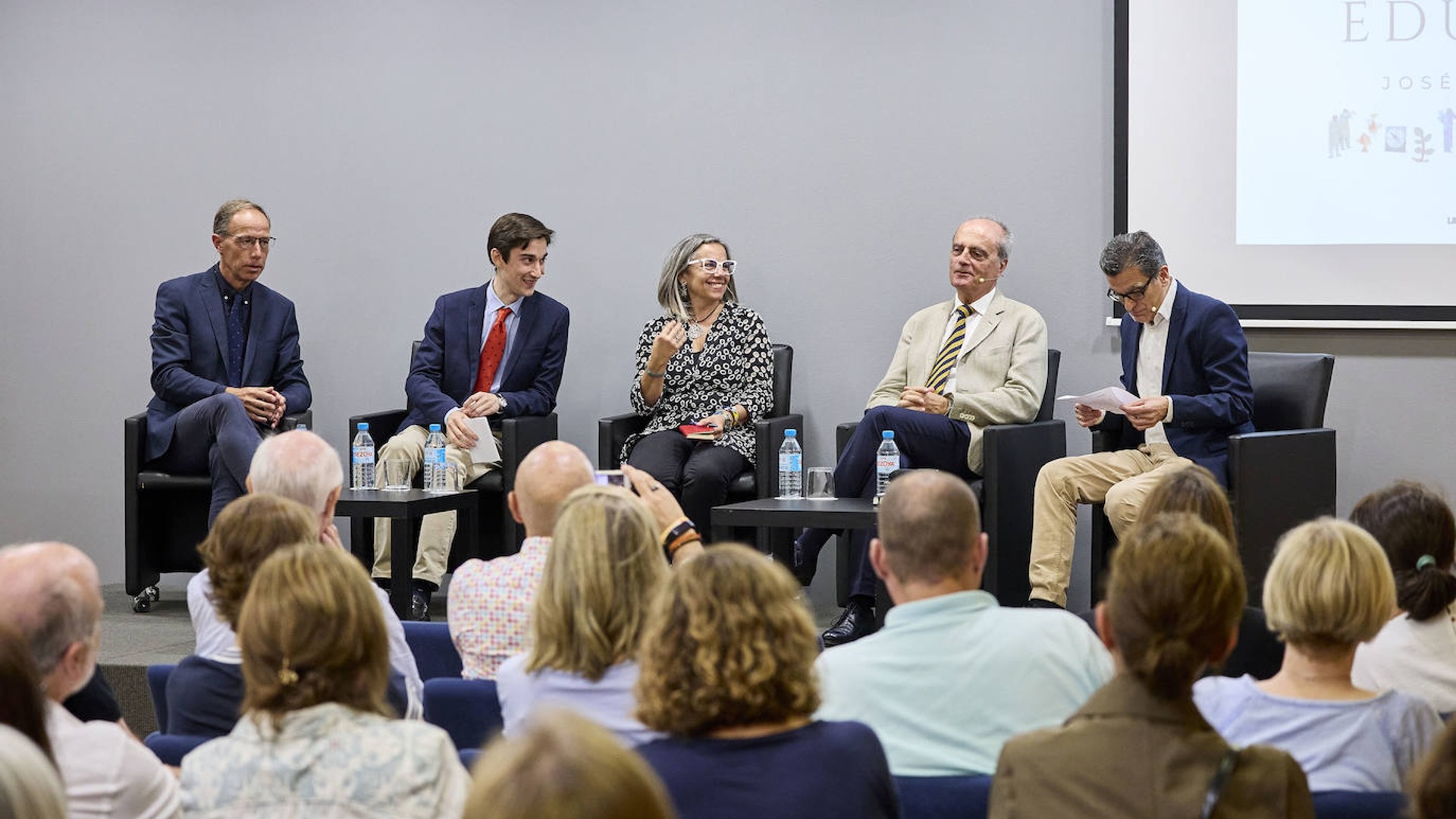The objective of the II José María Salaverri Forum was to talk about education, but going beyond the usual debates to focus on the deeper implications of the noble art of educating, which transcends the school, inevitably involves the family, has an important (and underdeveloped) spiritual component and can be threatened by the context, be it the prevailing materialism, the demand for immediacy or “technological papanatism”, in the words of Professor Francesc Torralba, Professor of Ethics at the Ramon Llull University who starred in the central act of one Conference organized by the Nuestra Señora del Pilar school and THE PROVINCES.
Torralba, a prolific philosopher and theologian, focused his intervention on spiritual development, recognized in the United Nations international convention on the rights of the child. And just as important as the other, more classical, dimensions of the human being: the physical and physical, the psychic – mastering emotions in order “not to be governed by them” – and the social and interpersonal, because a human is a being “made to create communities.
Torralba pointed out that many educational ideas are focused on this three-dimensional vision, stressing that in order to achieve the integral formation of the person to be real, the spiritual dimension is essential, which he differentiated from the religious or confessional fact. In his opinion, there are several ways to detect that it has been cultivated. Or what is the same, he gave keys to do it.
«The expectations that are generated in the students sometimes do not lead them to find themselves»
He spoke of the “capacity for admiration or astonishment”, since every human being “has to be able to do so before the beauty of a painting, a sunset or a starry sky”. “If we turn the child into a recipient of stimuli, tied to a screen or saturated with activities, that capacity disappears because they don’t have time to wonder, something that activates the questioning.” In relation to this, he spoke of “questions about the meaning of life, love or death”, another key to spirituality, and also referred to “the need to create a life project: what to do, what orientation to give , stop, evaluate, become self-aware and not act in a gregarious way ». Another sign goes through “the ethical experience, of limits and duty”, as well as that referring to “transgression, guilt and what to do to heal the wound”, manifesting “forgiveness and repentance”.
«The moment you change the tablet for a better activity, the child prefers it»
Carmen Revillo
mother and journalist
The second part of the forum was a round table with profiles representing key players in education: Carmen Revillo, mother, Javier Cortés, educator, and Jesús Gómez, a young graduate in Political Science and an expert scout. Topics were discussed such as what the school can do to cultivate the spiritual dimension, with the intervention of Cortés proposing a reflection on “the expectations that are generated in the students, which sometimes do not lead them to find themselves, having to change their career because they have not found their place. And they also talked about the influence of technology as a result of Torralba’s allusion. “You don’t have to build walls, they should be seen as an opportunity, and educational work has to help you know how to set limits and control your influence,” said Gómez. For his part, Revillo added that despite its importance “at the moment you change the tablet for a better activity, the child prefers the second one.”
«You don’t have to build walls in the face of technology, educational work has to help set limits and control its influence»
“Progress has been confused with technological foolishness, with thinking that the more computers in the classroom, the better,” added Torralba, who warned that excess technology “makes concentration very difficult and activates dispersion,” although he did not want to sin of anachronism, betting on “governing this phenomenon to be master of technology and not a slave”.
During the forum, held at the Bancaja Foundation, the artist Luis Lonjedo was in charge of creating a painting that was based on a phrase by Torralba. The composition was something as simple and as profound as a child wondering at the drawing of a dove.

